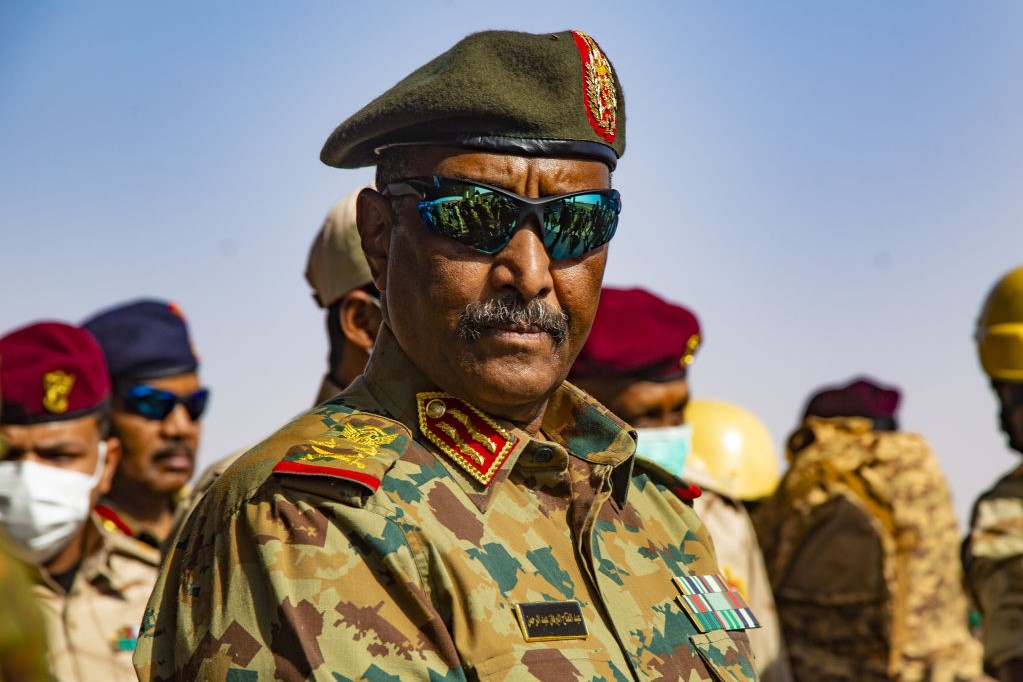“Trapped in a Spiral”
The World Food Programme (WFP), a UN organization, has warned that the hunger crisis within Sudan has the potential to become the “world’s largest hunger crisis” after stating that 25 million people across Sudan, Chad, and South Sudan are “trapped in a spiral” of food insecurity.
Alarms have been sounding within Sudan for several months now over the brewing hunger crisis there. Before the present war, which began in April of 2023, Sudan already had high levels of food insecurity, and approximately two million people had already been displaced. Since the beginning of the war, approximately eight million more have been displaced (both internally and externally), resulting in Sudan having the largest internal displacement crisis.

The WFP has reported that within Sudan itself 18 million people are experiencing acute levels of hunger. Of which, five million are experiencing emergency levels of hunger. The WFP has additionally stated that approximately 90% of those experiencing emergency levels of hunger are in areas that are simply inaccessible to the WFP, meaning they are going entirely without aid.
Darfur, which 20 years ago experienced the world’s largest hunger crisis at the time, has again become a particular hotspot for hunger issues. However, the WFP has stated that “humanitarian assistance has been further disrupted after authorities revoked permissions for cross border truck convoys, forcing WFP to halt its operations from Chad into Darfur.”
While the WFP does not explicitly name these “authorities”, the vast majority of Darfur is controlled by the Rapid Support Forces (RSF), a paramilitary force in opposition to the Sudanese Military Junta, or the Sudanese Armed Forces (SAF).

The WFP has further reported that only five percent of Sudan’s population “can afford a square meal a day.”
“A Breaking Point”
Since the outbreak of the war, hunger is not the only crisis facing Sudan. Sudan’s infrastructure throughout the nation has been decimated, and the Sudanese economy is in shambles.
The UN and other international entities are warning that the present humanitarian situation in Sudan is at its breaking point, and if things continue as they are, faces a complete collapse.
On top of many areas being inaccessible within Sudan, the WFP and other aid groups have also stated they simply do not have enough aid to deliver to the populations that they can reach.
Khartoum, the capital of Sudan, has faced particular destruction. Over the course of the war both the RSF and the SAF have been fighting for control of the capital. Both have also been accused of indiscriminately bombing civilian areas.
The Sudanese military government on March 6th announced that they had agreed to allow humanitarian aid deliveries to enter Sudan through Chad and South Sudan, for the first time. While the agreement represents opportunities for aid delivery that may not have existed before, the WFP has been insistent that any meaningful way of stopping the crisis comes with ending the war.
“Ultimately, a cessation of hostilities and lasting peace is the only way to reverse course and prevent catastrophe” -WFP Statement
Many of the areas in Sudan that are inaccessible are so because of the heavy fighting throughout the country.
Attempted Peace Processes
Despite repeated attempts at international mediation of the war, there have been little signs of either side slowing down. A number of ceasefires were established in the earlier days of the war,all of which were quickly broken.
In January, the SAF suspended its cooperation with the Intergovernmental Authority on Development (IGAD, an East African trade bloc) after the bloc had attempted to hold a meeting between the two sides, in which it invited Mohamed ‘Hemedti” Hamdan Dagalo, the leader of the RSF. Sudan protested the move, stating it refused to meet with Hemedti, calling the invite a violation of their sovereignty.
However at the end of the month, it came to light that high level officials of both sides had met for talks three separate times in January in a private, and not publicly announced. The talks appear to have yielded little results, however marked the first time that high ranking officials of the RSF and the SAF had sat down together.
More recently, the African Union (AU) has held talks with General Abdel Fattah al-Burhan, the leader of the Sudanese military government. On March 3rd al-Burhan met with the AU’s High Level Panel on the Resolution of the Conflict in Sudan, in order to hold discussions on AU proposed solutions to aspects of the conflict, as well as for the AU to present itself as a mediator.

While reportedly al-Burhan has expressed “Sudan’s confidence in the AU’s potential solutions”, he has related any acceptance of these solutions to Sudan’s reinstatement as a full member of the AU.
Sudan was suspended from the AU on October 25th of 2021 after the SAF seized control of the country in a coup headed by al-Burhan, a coup which was condemned internationally. Al-Burhan has referred to the events as the “dissolution of the partnership” between Civilian and Military elements within Sudan, instead of a coup.
In addition to reinstatement in the AU, al-Burhan has demanded the RSF withdraw from occupied areas.


